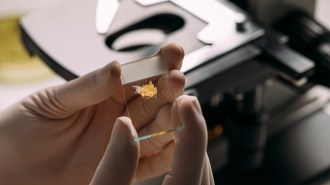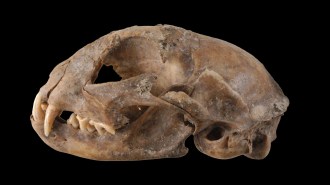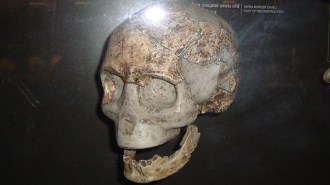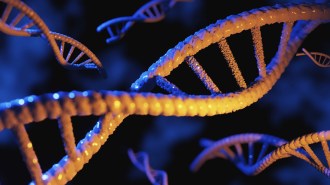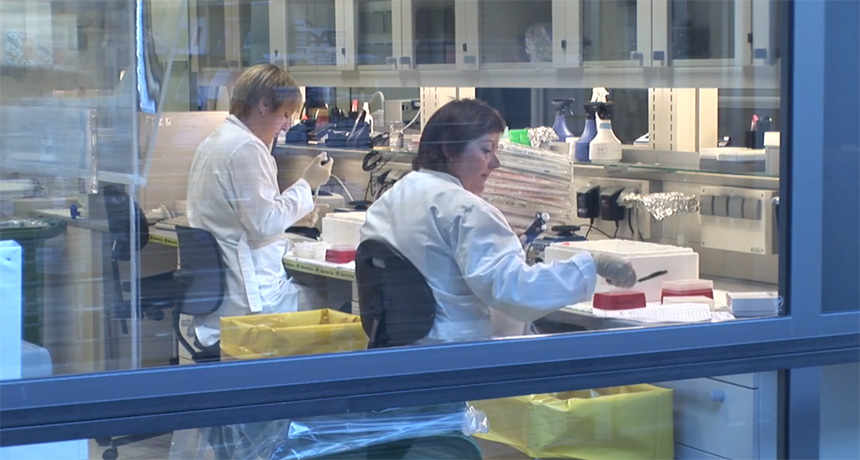
PAINTING A PORTRAIT Scientists are sequencing the genomes of a large swath of Icelanders to better understand the genetic underpinnings of disease.
NPG PRESS
- More than 2 years ago
By pinpointing a suite of dysfunctional genes, a detailed genetic portrait of the Icelandic population has helped scientists identify rare gene variants associated with Alzheimer’s disease and other medical problems.
An international team of researchers working with deCODE, a genetics company based in Reykjavík, Iceland, determined the complete genetic instruction manuals of 2,636 Icelanders. The team then used those genomes to fill in gaps in genetic information taken from about 100,000 other Icelanders. The result is the largest set of human genomes sequenced from a single population.
One of the things the data revealed are rare variants of a gene called ABCA7 that double Icelanders’ risk of developing Alzheimer’s disease, the team reports online March 25 in one of a series of papers in Nature Genetics. Previous studies have hinted at an association between ABCA7 and Alzheimer’s. The new result confirms the link and offers a good starting point for biologists to figure out how ABCA7 influences the pathology of the disease, says Gerard Schellenberg, an expert in the genetics of Alzheimer’s at the University of Pennsylvania School of Medicine who was not involved in the study.
“We are at the beginning of a new process,” said study coauthor Kári Stefánsson, a neurologist at the University of Iceland and CEO of deCODE, in a March 23 press briefing. He explained that the variants of ABCA7 identified can inactivate the gene. That inactivation appears to increase an individual’s risk of developing Alzheimer’s disease. The finding is just one example of the many insights Stefánsson and his colleagues expect to gain by studying genes commonly inactivated in a large group of people and comparing the results with detailed medical records of the individuals.
“There’s no question deCODE is ahead of the game,” says Daniel MacArthur, a geneticist at Massachusetts General Hospital in Boston who was not involved in the new research. “They lay out a plan for how genomics will be done in the future.”
Humans have more than 20,000 genes, and scientists don’t understand the role of the majority of them, MacArthur notes. Researchers usually use mice, rats and other lab animals to determine what happens biologically when specific genes are inactivated. These animals, called knockouts, are engineered so that specific genes don’t work, allowing scientists to gain insight into a gene’s function or its potential role in disease.
The Icelandic dataset allows scientists to identify individuals who have inherited versions of certain genes that make the genes inactive — essentially human versions of the knockout models used in biomedical research. Researchers also have access to the individual’s medical records, allowing them to link certain genetic variants to health consequences.
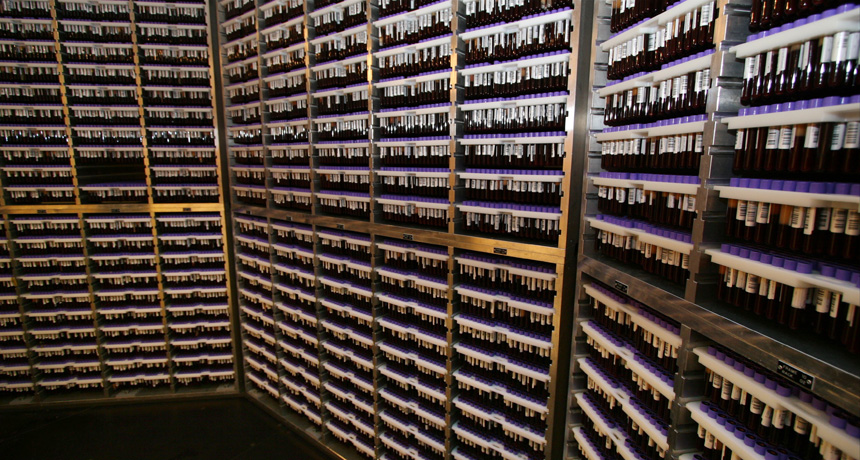
In one of the new reports, Stefánsson and colleagues identified 8,041 Icelandic individuals who had genetic variants that completely knocked out a gene’s ability to make a functional protein. Genes involved in smell discrimination were the most commonly affected, though these losses carried little to no health risks. Genes that work in the brain, and presumably are essential for health, rarely became completely inactive, the team reports.
While the data are limited to a specific population, the approach is potentially powerful and may provide a better sense of what many genes do and which ones are important, MacArthur says. He and colleagues are working on projects using a similar population-based genomics approach in Finland and Pakistan to identify human knockouts in those populations.
MacArthur, Schellenberg and Stefánsson all emphasized the potential of using large sets of genomes to reveal knockout genes that protect against disease. “Finding those will be good for developing therapeutic drugs,” MacArthur says.
In related papers, Stefánsson and colleagues identify a gene variant associated with an increased risk of developing liver disease and pinpoint mutations associated with the early onset of abnormal heart rhythms. The team also estimates that on average the Y chromosome undergoes one mutation every 58 years. The result offers insight into how quickly humans are evolving and adjusting to changes in the environment, Stefánsson said.
He noted that deCODE is now working with Iceland’s health system to share the genetic data from the studies for use in preventive medicine.

